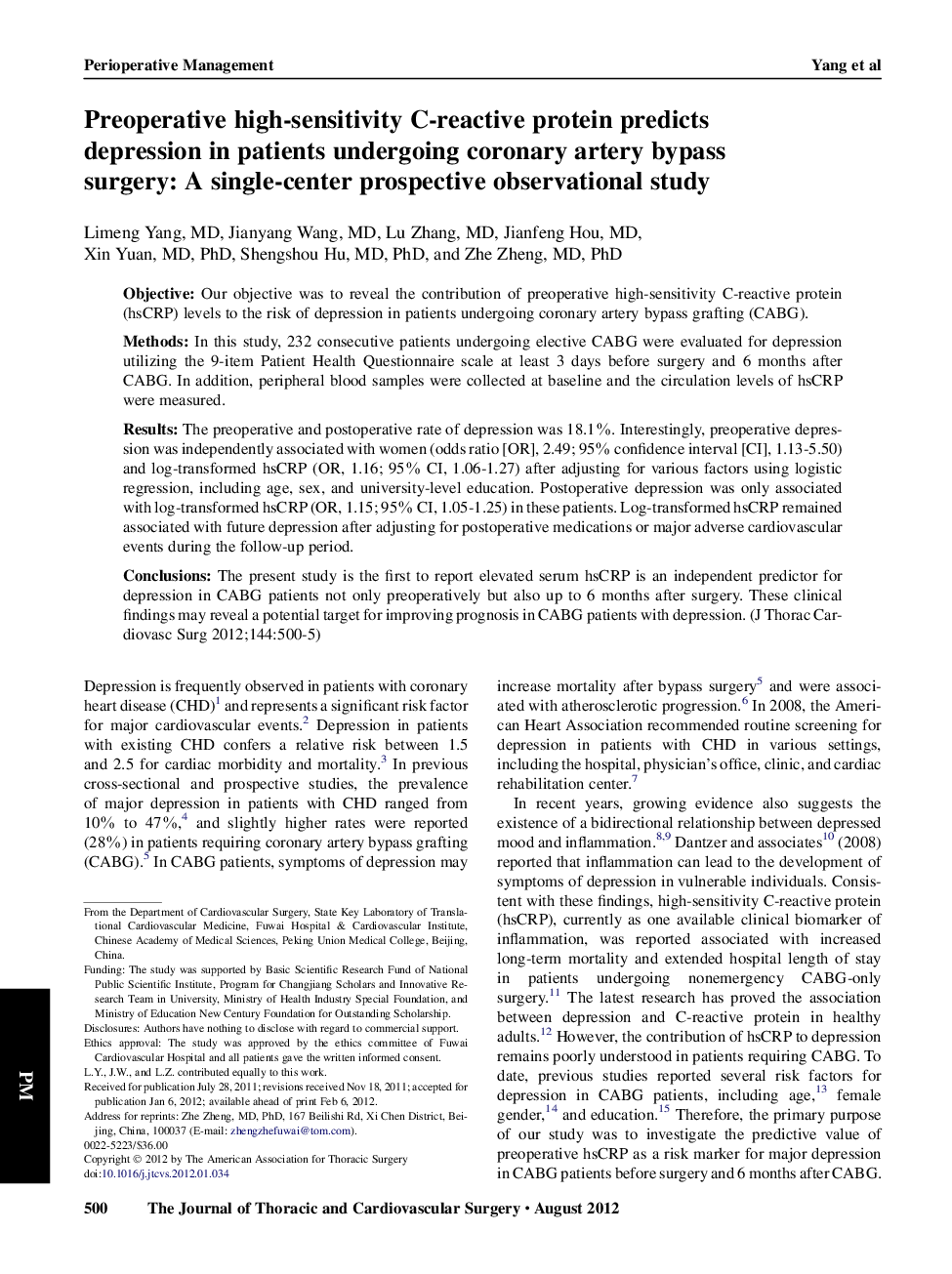| Article ID | Journal | Published Year | Pages | File Type |
|---|---|---|---|---|
| 2981710 | The Journal of Thoracic and Cardiovascular Surgery | 2012 | 6 Pages |
ObjectiveOur objective was to reveal the contribution of preoperative high-sensitivity C-reactive protein (hsCRP) levels to the risk of depression in patients undergoing coronary artery bypass grafting (CABG).MethodsIn this study, 232 consecutive patients undergoing elective CABG were evaluated for depression utilizing the 9-item Patient Health Questionnaire scale at least 3 days before surgery and 6 months after CABG. In addition, peripheral blood samples were collected at baseline and the circulation levels of hsCRP were measured.ResultsThe preoperative and postoperative rate of depression was 18.1%. Interestingly, preoperative depression was independently associated with women (odds ratio [OR], 2.49; 95% confidence interval [CI], 1.13-5.50) and log-transformed hsCRP (OR, 1.16; 95% CI, 1.06-1.27) after adjusting for various factors using logistic regression, including age, sex, and university-level education. Postoperative depression was only associated with log-transformed hsCRP (OR, 1.15; 95% CI, 1.05-1.25) in these patients. Log-transformed hsCRP remained associated with future depression after adjusting for postoperative medications or major adverse cardiovascular events during the follow-up period.ConclusionsThe present study is the first to report elevated serum hsCRP is an independent predictor for depression in CABG patients not only preoperatively but also up to 6 months after surgery. These clinical findings may reveal a potential target for improving prognosis in CABG patients with depression.
